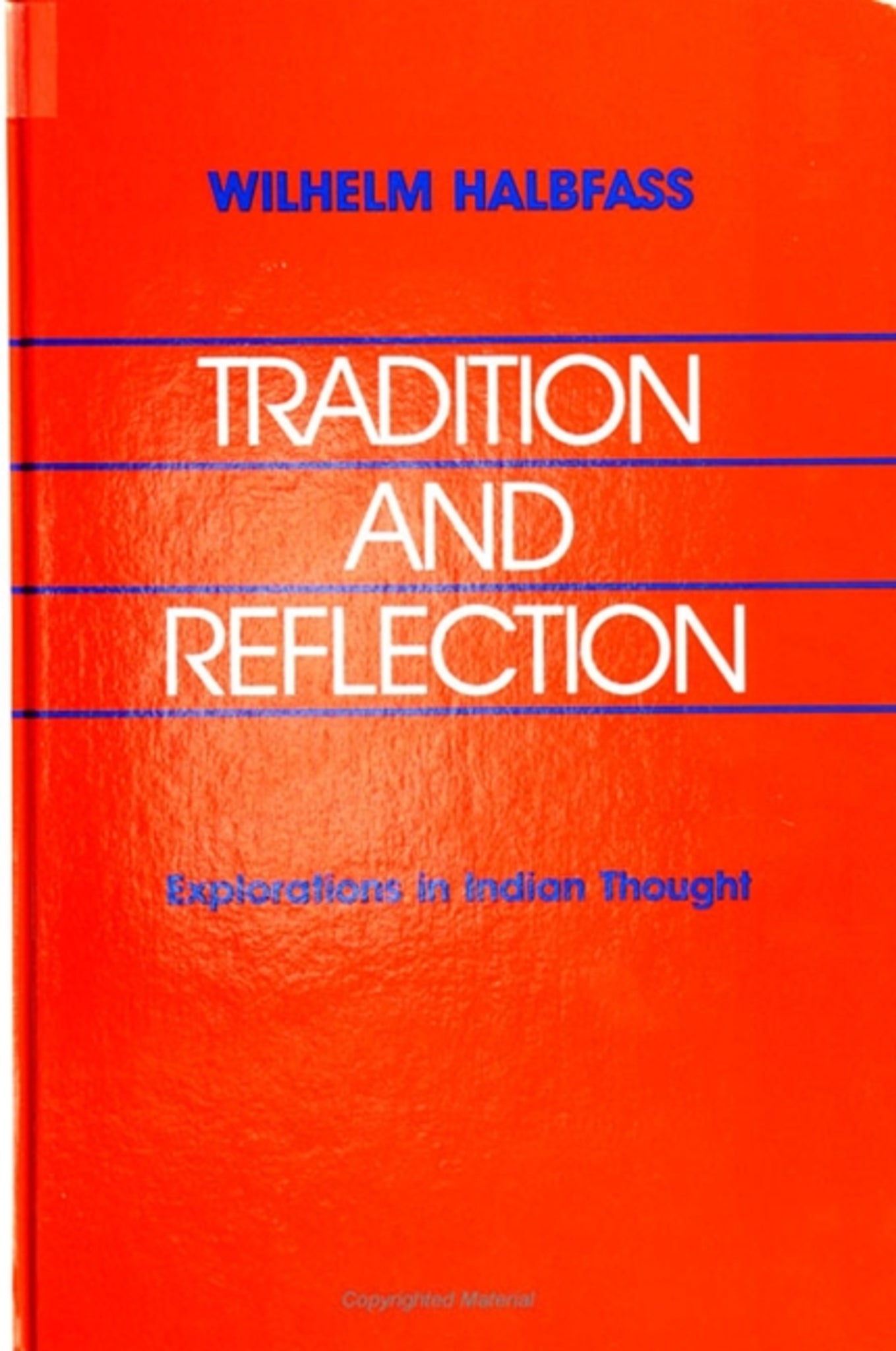We're sorry. An error has occurred
Please cancel or retry.
Tradition and Reflection

Some error occured while loading the Quick View. Please close the Quick View and try reloading the page.
Couldn't load pickup availability
- Format:
-
11 December 1990

This book examines, above all, the relationship between reason and Vedic revelation, and the philosophical responses to the idea of the Veda. It deals with such topics as dharma, karma and rebirth, the role of man in the universe, the motivation and justification of human actions, the relationship between ritual norms and universal ethics, and reflections on the goals and sources of human knowledge.
Halbfass presents previously unknown materials concerning the history of sectarian movements, including the notorious "Thags" (thaka), and relations between Indian and Iranian thought. The approach is partly philosophical and partly historical and philological; to a certain extent, it is also comparative.
The author explores indigenous Indian reflections on the sources, the structure and the meaning of the Hindu tradition, and traditional philosophical responses to social and historical realities. He does not deal with social and historical realities per se; rather, basing his work on the premise that to understand these realities the reflections and constructions of traditional Indian theorists are no less significant than the observations and paradigms of modern Western historians and social scientists, he explores the self-understanding of such leading thinkers as Sankara, Kumarila, Bhartrhari and Udayana.


"Halbfass treats areas of Indian philosophy which have not been treated systematically until now, the understanding of which is nonetheless very important for our understanding of India philosophy as a whole. His work marks an important shift in our awareness away from theories of reality and knowledge per se, toward the larger framework of hermeneutical reflection and human motivation within which those theories were devised. This is a work of exceptional quality and importance; a significant, new picture of Hindu philosophical thought emerges." — John Taber
Preface
1. The Idea of the Veda and the Identity of Hinduism
2. The Presence of the Veda in Indian Philosophical Reflection
3. Vedic Orthodoxy and the Plurality of Religious Traditions
4. Vedic Apologetics, Ritual Killing, and the Foundations of Ethics
5. Human Reason and Vedic Revelation in Advaita Vedanta
6. Sankara, the Yoga of Patanjali, and the So-Called Yogasutrabhasyavivarana
7. The Therapeutic Paradigm and the Search for Identity in Indian Philosophy
8. Man and Self in Traditional Indian Thought
9. Competing Causalities: Karma, Vedic Rituals, and the Natural World
10. Home Hierarchicus: The Conceptualization of the Varna System in Indian Thought
Abbreviations
Index



